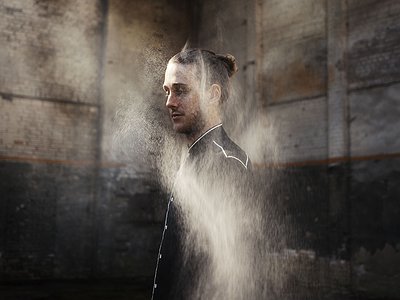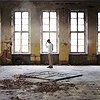Name: Sebastian Plano
Nationality: Argentinian
Occupation: Composer, producer, musician
Current Release: Verve on Mercury KX
Recommendations: ‘Koyaanisqatsi’ (1982) is a bible to me. It’s a beautiful film by director Godfrey Reggio with music by Philip Glass, if not yet discovered, I highly recommend to sit and experience this.
Also 1962’s book ‘Historias de Cronopios y de Famas’ by writer Julio Cortazar. This is an amazing short stories book where Cortazar imagines three categories in our society; Cronopios are depicted as naive and idealistic, disorganised, unconventional and sensitive creatures, while Famas (Fames) are the opposite, being the rigid, organised and judgmental if well- intentioned. Then the Esperanzas (Hopes), who stand in the middle being plain, indolent, unimaginative and dull.
If you enjoyed this interview with Sebastian Plano, check out his beautiful website for an expanded bio, tour dates and an overview of his work.
When did you start writing/producing music - and what or who were your early passions and influences? What is about music and/or sound that drew you to it?
I started playing cello when I was 7 and to write music when I was 11. Classical music was definitely an influence while I was growing up, as both of my parents were members of the Philharmonic. However, I remember being so captivated by electronic sounds as well at that time. My dad used to watch 'Cosmos' by Carl Sagan, and I would be a kid running around the house while picking up on the music by Vangelis from the series. For my 8th birthday I asked my dad for a Vangelis’s cassette and that opened up another dimension of sounds for me.
For most artists, originality is first preceded by a phase of learning and, often, emulating others. What was this like for you? How would you describe your own development as an artist and the transition towards your own voice? What is the the relationship between copying, learning and your own creativity?
Originality has been a centre of focus for me all along this time, I find it essential, wouldn’t find a purpose to create music otherwise.
I feel I’ve followed a path in music that allowed me the tools to search for the originality I was looking for. The fact that I play and record all the instruments by myself, gives me the freedom not only to experiment compositionally but also to be creative with the interpretation and exploring recording techniques as well.
What were your main compositional- and production-challenges in the beginning and how have they changed over time?
There were mostly logistical challenges to write and record music during my studies. For instance back in 2003, when I was studying in Italy, I once got on probation for braking into the music school at 1AM to sit and write at the piano, crazy! For my second record ‘Impetus’ I managed to produce and record it in between the conservatory and my tiny room in San Francisco, afterwards Nils [Frahm] put some beautiful spells on it in Berlin. Things have changed today, gladly!
[Read our Nils Frahm interview]
What was your first studio like? How and for what reasons has your set-up evolved over the years and what are currently some of the most important pieces of gear for you?
I would say my first studio was a typical conservatory practise room, sitting at the piano to improvise or write while I was taking the longest ‘cello-practice’ breaks. I didn’t have a studio but my room in San Francisco where I worked on my first two records while doing some of the recordings on a grand Steinway at the SF conservatory.
My most important gear are my main instruments; the cello, a beloved Yamaha CP-80 electric piano from the 80’s and my grandpa’s Bandoneon, and always been experimenting with my voice as well.
How do you make use of technology? In terms of the feedback mechanism between technology and creativity, what do humans excel at, what do machines excel at?
I use mostly instruments and synthesisers plus a wide range of effects, I don’t use any sort of libraries when working on a record. I find machines can be really inspiring at times, especially old gear not only for its sound but also for its aged beauty. I think it definitely inspires creativity.
Production tools, from instruments to complex software environments, contribute to the compositional process. How does this manifest itself in your work? Can you describe the co-authorship between yourself and your tools?
My compositional process is very organic in the sense that all sounds recordings are coming from an acoustic instruments and later processed with effects. The use of synthesisers happens often as well but generally acoustic sounds takes the broad scope of my work. For example in ‘Emotions (Part II)’, all the beats were entirely made from recordings of my mouth and the kick is me hitting my chest with a fist. The track ‘Verve’ from my latest album is also done with only with acoustic instruments and vocals. Also, I use pen and paper as another tool which is really powerful when sketching out ideas.
Collaborations can take on many forms. What role do they play in your approach and what are your preferred ways of engaging with other creatives through, for example, file sharing, jamming or just talking about ideas?
The beautiful side of collaborating with other artists is not knowing where that synergy will end up taking you. I’ve come to experience all of the approaches mentioned in your question and I would say jamming it’s the most gratifying one to me because of the interaction based on the constant response to what you hear. There is an exciting new collaboration that will be announced soon which had involved countless of late night jams ...!



